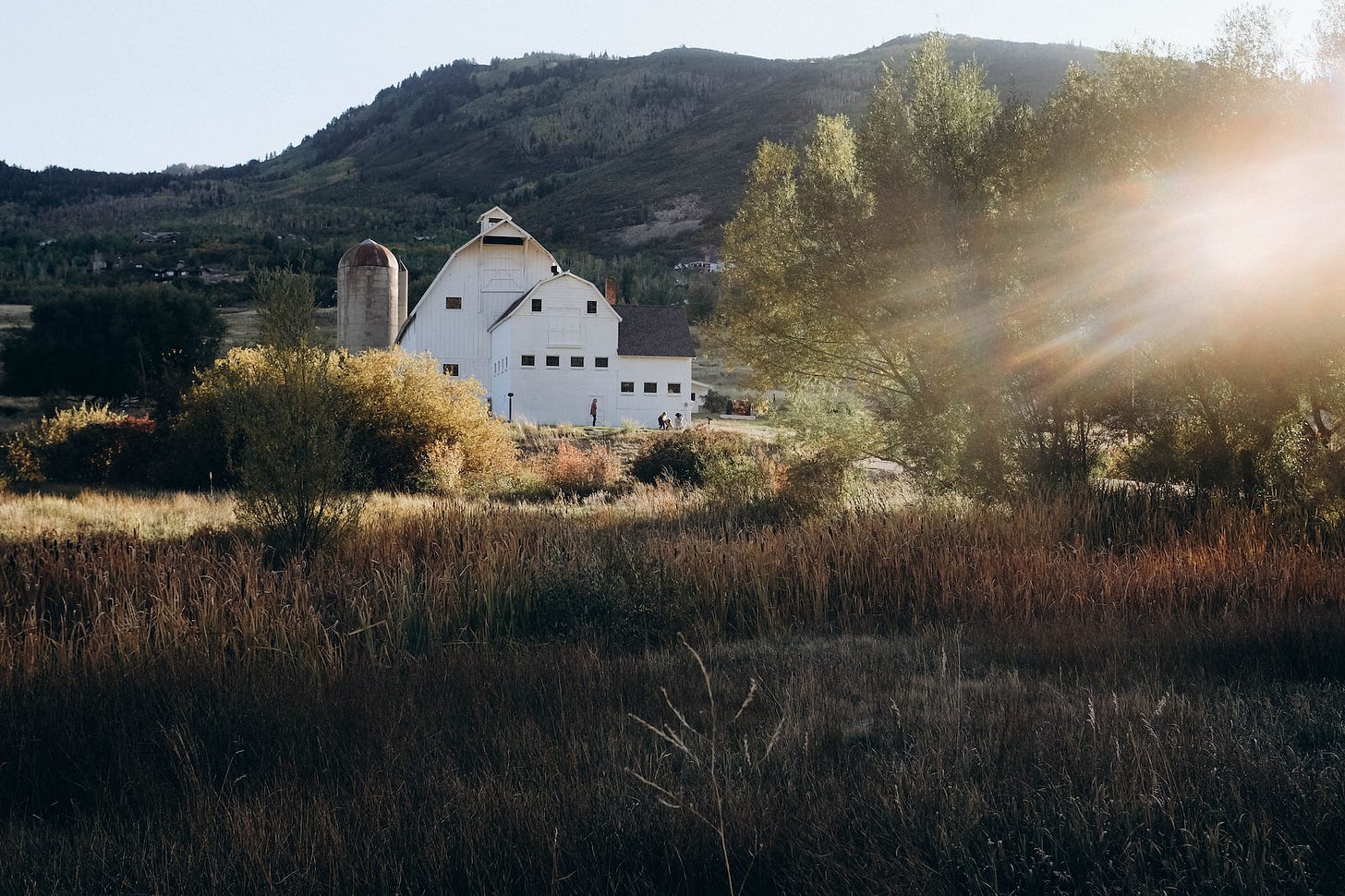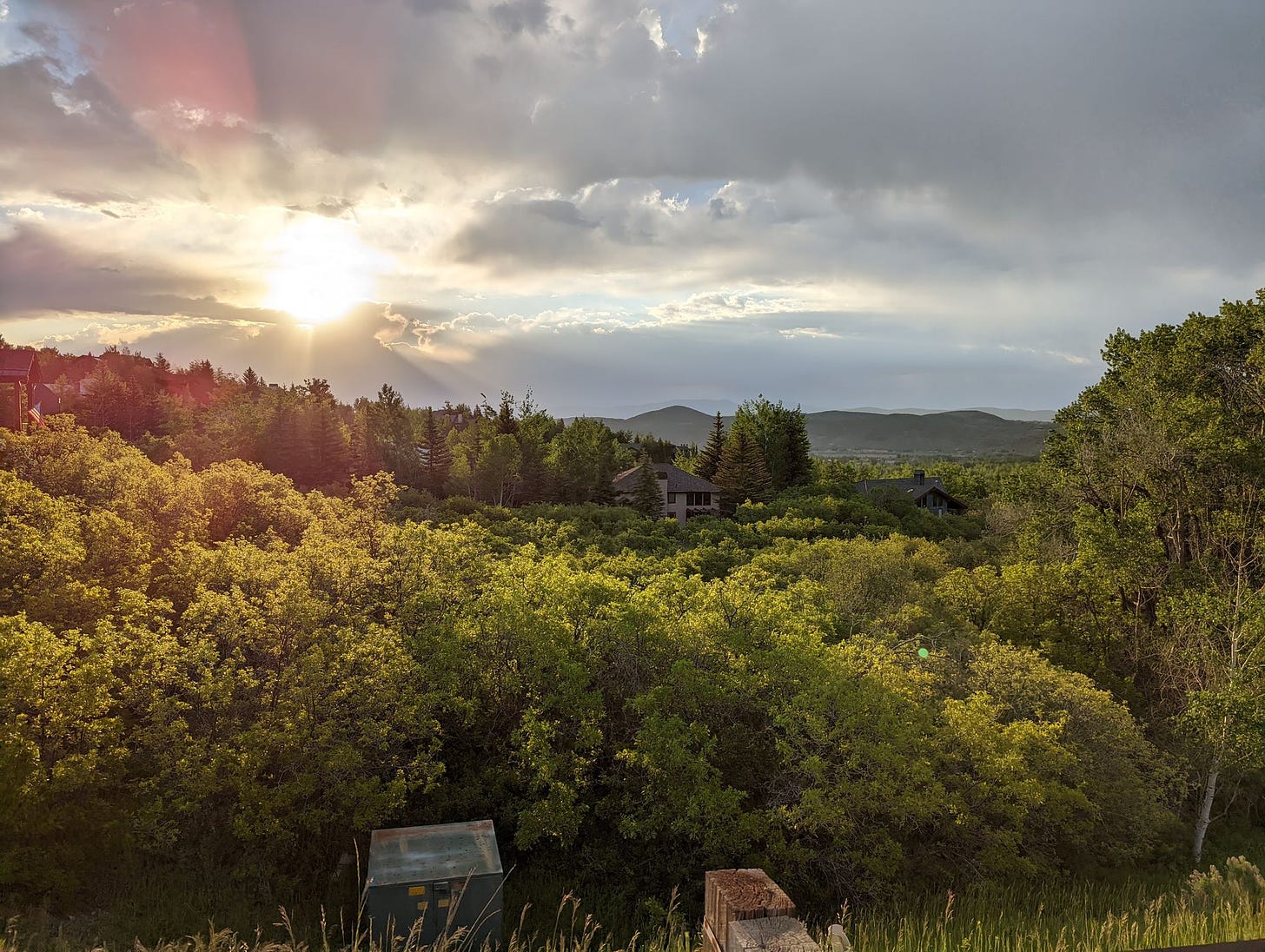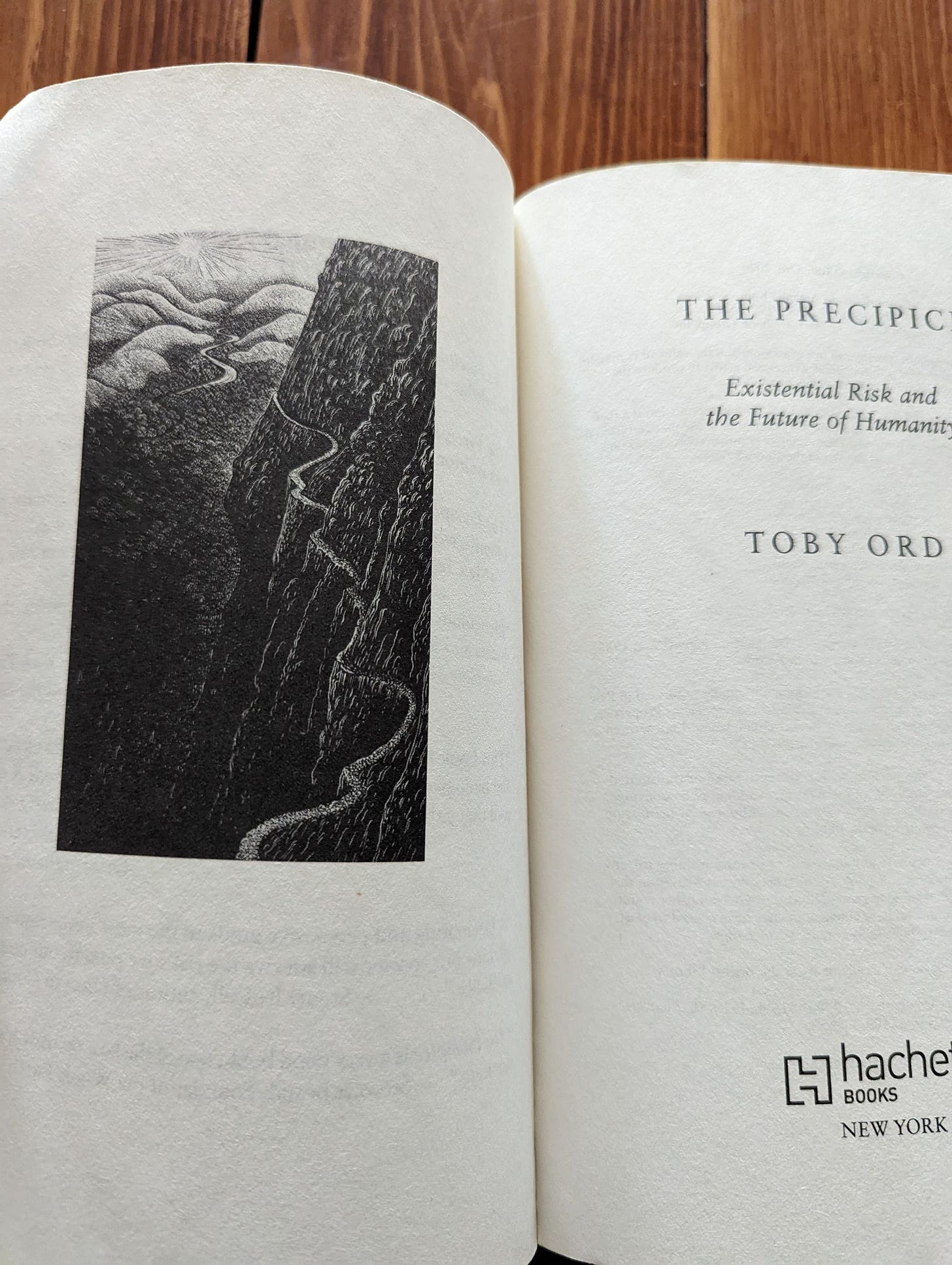My 3rd Reading Retreat: The Precipice in Park City Edition
My Takeaways from my recent Reading Retreat on The Precipice by Toby Ord
Some Background

I did my 3rd, what I call, Reading Retreat, a couple weekends ago in Park City. As always I focus on a book I recently finished to suck the marrow out of it using discussion if I’m with others or journal prompts if I’m solo. This time I had just finished The Precipice by Toby Ord.
Toby Ord is a professor at Oxford University. He used to research ethics and how to best donate to or serve the poorest people in the world that are currently living. He switched from this research to looking into the ethics and donating to and serving future generations. Instead of thinking on the scale of the entire global population currently living, he now thinks on the scale of the entirety of the human species, i.e. those that lived in the past, live now, and will live in the future. He points out
“The people of the future may be even more powerless to protect themselves from the risks we impose than the dispossessed of our own time.” (p. 8)
By changing the scale, the timeline and background on which he thinks about ethics and doing the most good, he draws some wild conclusions. The most interesting of which to me is that we might be, as a species, in a phase equivalent to an individual’s adolescence. Or, what might be a bit more powerful of an analogy, teenagerhood. He poses the question, will we as a species survive and learn to mature into an “adult” species that can make decisions and be self-sufficient and thrive and create and multiply? Or will we make some life-shattering decision that kills our potential or ends our life completely?
The bulk of the book is Ord enumerating the various existential risks to humanity’s potential and/or survival. While it is interesting to quantify the risk of an asteroid hitting the earth in the next couple thousand years or the likelihood that a pandemic worse than the one we’re in now will cause the collapse of institutions and life as we know it, I find the beginning and endings of the book more interesting. The analogy of humanity as a species “growing up” and what we might do about it. What most stands out to me is the relationship of our power to our wisdom, a topic that’s fascinated me for at least a decade and maybe more. Below are my main takeaways from the book.
Our Power > Our Wisdom
Here, Ord quotes Carl Sagan to state the root of the problem facing humanity.
The problem is not so much an excess of technology as a lack of wisdom. Carl Sagan put this especially well:
Many of the dangers we face indeed arise from science and technology— but, more fundamentally, because we have become powerful without becoming commensurately wise. The world-altering power that technology has delivered into our hands now require a degree of consideration and foresight that has never before been asked of us.
Another thinker out there with the same warning is Peter Senge the popularizer of the “Learning Organization.” At least that’s where I first heard of this risk to human survival. In a bit I’ll get into what I think, Ord thinks wisdom actually is in this context because the topic of wisdom was my main motivation for reading this book. I’ll also get into the role reading retreats could play in cultivating wisdom in my next post.
We Need to Act Now
Given this race between our wisdom and our power (more specifically technological power), we end up with a real risk to humanity, possibly the greatest being our inability to face and ameliorate climate change. He, like many others, point out we need to act now, yesterday, long ago. We need to get our act together, mature to adulthood. If we don’t, we simply might not survive.
Survive then Thrive
In a few moments in the book, Ord points to a potentially brighter future. What if we thread the needle and humanity matures to species adulthood? The possibilities are endless. He points our imaginations toward the stars and galaxies we might visit, explore. I can’t deny that it’d be pretty cool to get past this precipice. When I read about humanity thriving as a grownup, I daydream less about the stars and more about cleaning up and putting things back where we found them. What if we had next generation energy sources and we could repair the earth, de-pollute, remove plastics from oceans, etc. I also then think what if we could achieve an amount of wisdom to actually improve the earth treating it like a garden. What if we could responsibly and wisely increase the variety of species. Undoing the damage and improving once undone is a daydream inspired by this thriving at this long long term scale.
You Can Do Your Part
On to the How. What can we do as individuals to help to mature humanity so we survive and can one day thrive? Ord points out that if you’re early in your career you can choose one that will move the needle on the research we need to survive. Of course you could also change careers if your career is underway. He points to the jobs and overall advice on the 80000 Hours website which shares very practical entry points for people to contribute to a better future for humanity.
Ord is also the founder/early proponent for the Effective Altruism movement that advocates donating a fixed % of income to certain causes. It also advocates donating to causes, groups, foundations, etc that have been scientifically proven to make the best difference in the “dispossessed among us.” Checking out a site like Give Well is a great start to diving down that rabbit hole. But of course, as mentioned above, Ord might make the case that donating to causes that further the rights of “the dispossessed not yet among us” is more important as no one living is currently pushing their rights and interests forward. This is one of those ideas that still blows my mind 🤯.
Quod est Wisdom … to Ord
Wisdom is the topic that drew me to this book. As already mentioned, humanity is like a teenager that can do all the adult things but has no life experience to make great decisions. In the race between power development and wisdom development power is winning and wisdom is lagging far far behind. This makes me ask two questions: 1) What is wisdom? or What is Ord meaning by wisdom? 2) How might we cultivate wisdom at all, let alone more quickly?
1) What is Wisdom?
When I think of wisdom I think back to reading Plato in college. Ord doesn’t seem to be talking about that kind of wisdom. He seems to point more to collective action + specific researches, and how to handle specific tech issues. Heading up one level of abstraction, I personally see wisdom being more of a psycho-social thing needed for meaning making, decision making, governing, and regulating our way through to survival. Contrary to how I think of it, wisdom in The Precipice seems to be very very practical.
2) How Might we Cultivate Wisdom?
Research makes sense. Even if it sounds too ivory tower to me. Peer-reviewed research is of course important as we need to know more about the risks/threats humanity faces. But what about the myriad obstacles that make it hard to operationalize research? The best example of this to me is climate change. We know what’s going on. We even know causes and changes we could make to meet this crisis. Yet we do precious little to move the needle. What might it take to transcend our human psycho-social differences to wisely govern, to wisely regulate, to act collectively with the broadest yet fairest basis possible? This is what I’ll get into in my next Precipice Reading Retreat post. 🤓 😎



